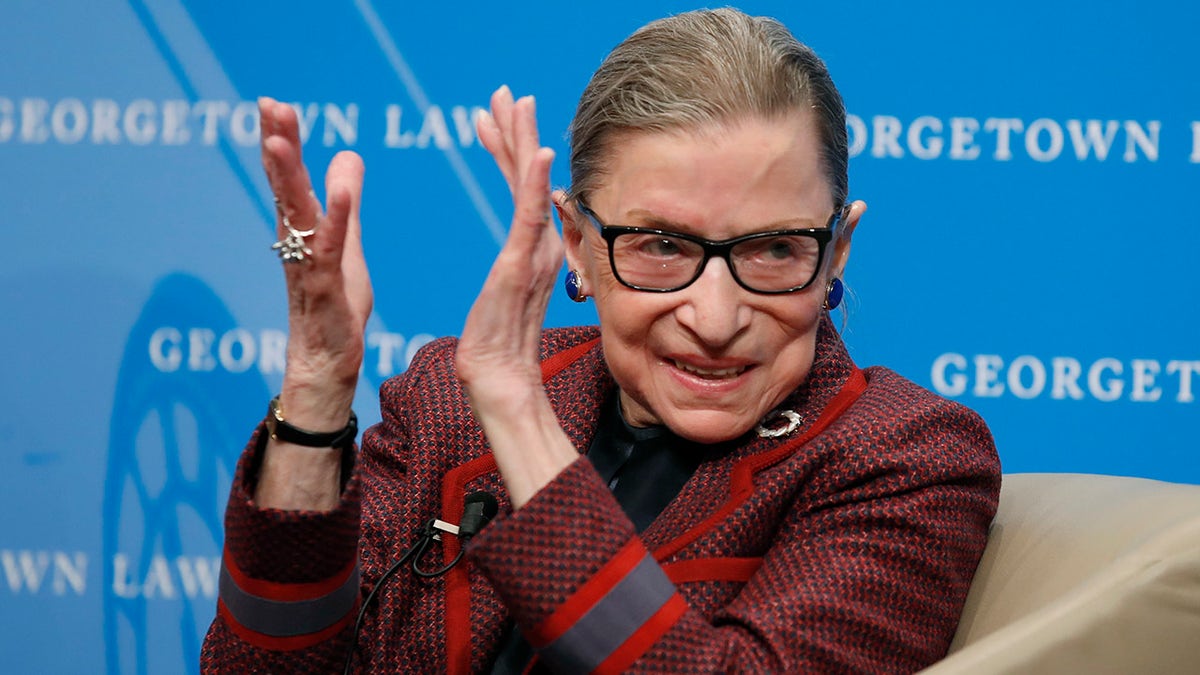Sen. Tom Cotton: Senate will move forward 'without delay' on Ginsburg successor
Sen. Tom Cotton on Republicans having enough votes to confirm a nominee to the Supreme Court.
Moderate Republican Govs. Phil Scott of Vermont and Charlie Baker of Massachusetts separately pushed for the Trump administration to hold off on filling Supreme Court Justice Ruth Bader Ginsburg’s seat until after Election Day.
GINSBURG VACANCY PUTS PRESSURE ON TRUMP-CRITIC REPUBLICANS IN SENATE
"The passing of Justice Ginsburg is not only a loss for the court but for the entire nation, and I urge President Trump and the U.S. Senate to allow the American people to cast their ballots for president before a new justice is nominated or confirmed," Baker wrote on Twitter.
"The Supreme Court is too important to rush and must be removed from partisan political infighting," he continued.
Scott expressed a similar sentiment following news of Ginsburg's death Friday at the age of 87.
"I am saddened to learn of the death of Supreme Court Justice Ruth Bader Ginsburg," Scott wrote on Twitter. "I send my heartfelt condolences to her family, friends, and colleagues. ... While it is important to take the time to mourn her passing, we must also follow precedent, as well as her dying wishes, and delay the appointment process until after Inauguration Day."
Moderates including Sen. Susan Collins, R-Maine, oppose President Trump's intention to nominate a new Supreme Court justice before Americans vote in November. Collins, who is in a reelection fight, said on Saturday she wants whoever wins in November to nominate the next justice. She faced backlash in 2018 for supporting Trump nominee Justice Brett Kavanaugh.

In this April 6, 2018, file photo, Supreme Court Justice Ruth Bader Ginsburg applauds after a performance in her honor after she spoke about her life and work during a discussion at Georgetown Law School in Washington. (AP Photo/Alex Brandon, File)
"In fairness to the American people, who will either be reelecting the president or selecting a new one, the decision on a lifetime appointment to the Supreme Court should be made by the president who is elected on November 3," she said in a statement.
And former Sen. Jeff Flake, R-Ariz., a noted Trump critic, also opposes nominating a justice before the election in November. He compared the situation at hand to that of former President Barack Obama nominating Merrick Garland to succeed the late Justice Antonin Scalia in 2016.
"In 2016, nine months before an election, we Republicans said that the next president should fill a Supreme Court vacancy," Flake wrote on Twitter on Saturday. "Today, six weeks before an election, we should hold the same position. Preserving the institution of the Senate should be paramount to any political gain."
Senate Majority Leader Mitch McConnell announced, soon after Ginsburg's death, that the Senate would vote on a nominee put forward by Trump to replace her.
CLICK HERE TO GET THE FOX NEWS APP
McConnell hopes to avoid any Republican defections as Democrats plan to try to peel off enough GOP senators to defeat a vote before Inauguration Day. (A tie would place the fate of a nominee in the hands of Vice President Pence, in his role as Senate president.)
Fox News' Sam Dorman and Brie Stimson contributed to this report.





